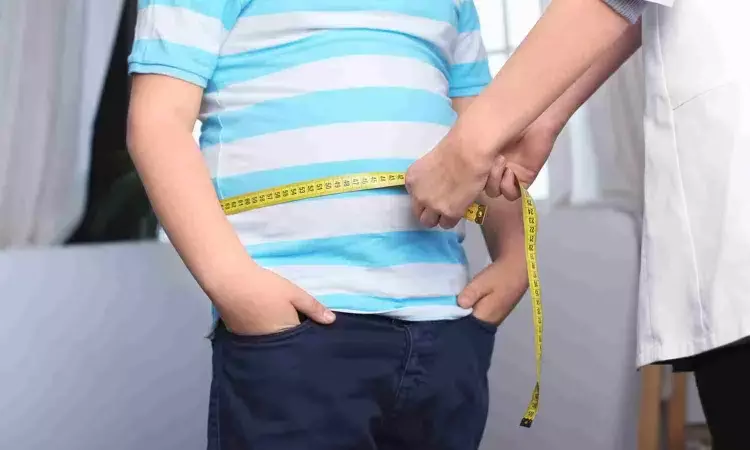- Home
- Medical news & Guidelines
- Anesthesiology
- Cardiology and CTVS
- Critical Care
- Dentistry
- Dermatology
- Diabetes and Endocrinology
- ENT
- Gastroenterology
- Medicine
- Nephrology
- Neurology
- Obstretics-Gynaecology
- Oncology
- Ophthalmology
- Orthopaedics
- Pediatrics-Neonatology
- Psychiatry
- Pulmonology
- Radiology
- Surgery
- Urology
- Laboratory Medicine
- Diet
- Nursing
- Paramedical
- Physiotherapy
- Health news
- Fact Check
- Bone Health Fact Check
- Brain Health Fact Check
- Cancer Related Fact Check
- Child Care Fact Check
- Dental and oral health fact check
- Diabetes and metabolic health fact check
- Diet and Nutrition Fact Check
- Eye and ENT Care Fact Check
- Fitness fact check
- Gut health fact check
- Heart health fact check
- Kidney health fact check
- Medical education fact check
- Men's health fact check
- Respiratory fact check
- Skin and hair care fact check
- Vaccine and Immunization fact check
- Women's health fact check
- AYUSH
- State News
- Andaman and Nicobar Islands
- Andhra Pradesh
- Arunachal Pradesh
- Assam
- Bihar
- Chandigarh
- Chattisgarh
- Dadra and Nagar Haveli
- Daman and Diu
- Delhi
- Goa
- Gujarat
- Haryana
- Himachal Pradesh
- Jammu & Kashmir
- Jharkhand
- Karnataka
- Kerala
- Ladakh
- Lakshadweep
- Madhya Pradesh
- Maharashtra
- Manipur
- Meghalaya
- Mizoram
- Nagaland
- Odisha
- Puducherry
- Punjab
- Rajasthan
- Sikkim
- Tamil Nadu
- Telangana
- Tripura
- Uttar Pradesh
- Uttrakhand
- West Bengal
- Medical Education
- Industry
Liraglutide Effective in Reducing BMI in Obese Children Aged 6 to 12: SCALE Kids Trial Results

USA: In a recent study, liraglutide, a medication primarily used for type 2 diabetes, has demonstrated significant potential in managing obesity in children aged 6 to under 12 years. The randomized trial (SCALE Kids), which spanned 56 weeks, revealed that liraglutide combined with lifestyle interventions led to a more substantial reduction in Body Mass Index (BMI) compared to a placebo combined with lifestyle changes.
The findings were published online in The New England Journal of Medicine on September 10, 2024.
Obesity in children has become a pressing public health concern, with increasing rates of associated health issues such as type 2 diabetes, hypertension, and psychological problems. While lifestyle interventions, including diet and exercise, are cornerstones of obesity management, they are often insufficient on their own, leading researchers to explore pharmaceutical options.
Currently, there are no approved medications for treating nonmonogenic, nonsyndromic obesity in children under 12. While liraglutide has demonstrated effectiveness in inducing weight loss in adults and adolescents with obesity, its safety and efficacy for this younger age group have yet to be established. Considering this, Claudia K. Fox, University of Minnesota Medical School, Minneapolis, and colleagues investigated the effectiveness of liraglutide for children 6 to <12 years of age with obesity.
In the Phase 3a trial, the researchers evaluated the effects of liraglutide in children aged 6 to under 12 with obesity over a 56-week treatment period followed by a 26-week follow-up. Participants were randomly assigned in a 2:1 ratio to receive either once-daily subcutaneous liraglutide at a dose of 3.0 mg (or the maximum tolerated dose) or a placebo, alongside lifestyle interventions.
The primary outcome was the percentage change in body mass index (BMI), calculated as weight in kilograms divided by the square of height in meters. Confirmatory secondary outcomes included the percentage change in body weight and achieving a reduction in BMI of at least 5%.
Based on the study, the following findings were revealed:
- A total of 82 participants underwent randomization; 56 were assigned to the liraglutide group and 26 to the placebo group.
- At week 56, the mean percentage change from baseline in BMI was −5.8% with liraglutide and 1.6% with placebo, representing an estimated difference of −7.4 percentage points.
- The mean percentage change in body weight was 1.6% with liraglutide and 10.0% with placebo, representing an estimated difference of −8.4 percentage points, and a reduction in BMI of at least 5% occurred in 46% of participants in the liraglutide group and 9% of participants in the placebo group (adjusted odds ratio, 6.3).
- Adverse events occurred in 89% and 88% of participants in the liraglutide and placebo groups, respectively.
- Gastrointestinal adverse events were more common in the liraglutide group (80% versus 54%); serious adverse events were reported in 12% and 8% of participants in the liraglutide and placebo groups, respectively.
"Our findings showed that in children aged 6 to under 12 with obesity, a 56-week treatment regimen of liraglutide combined with lifestyle interventions led to a more significant reduction in BMI compared to placebo combined with lifestyle interventions," the researchers concluded.
Reference:
DOI: https://www.nejm.org/doi/full/10.1056/NEJMoa2407379
Dr Kamal Kant Kohli-MBBS, DTCD- a chest specialist with more than 30 years of practice and a flair for writing clinical articles, Dr Kamal Kant Kohli joined Medical Dialogues as a Chief Editor of Medical News. Besides writing articles, as an editor, he proofreads and verifies all the medical content published on Medical Dialogues including those coming from journals, studies,medical conferences,guidelines etc. Email: drkohli@medicaldialogues.in. Contact no. 011-43720751


